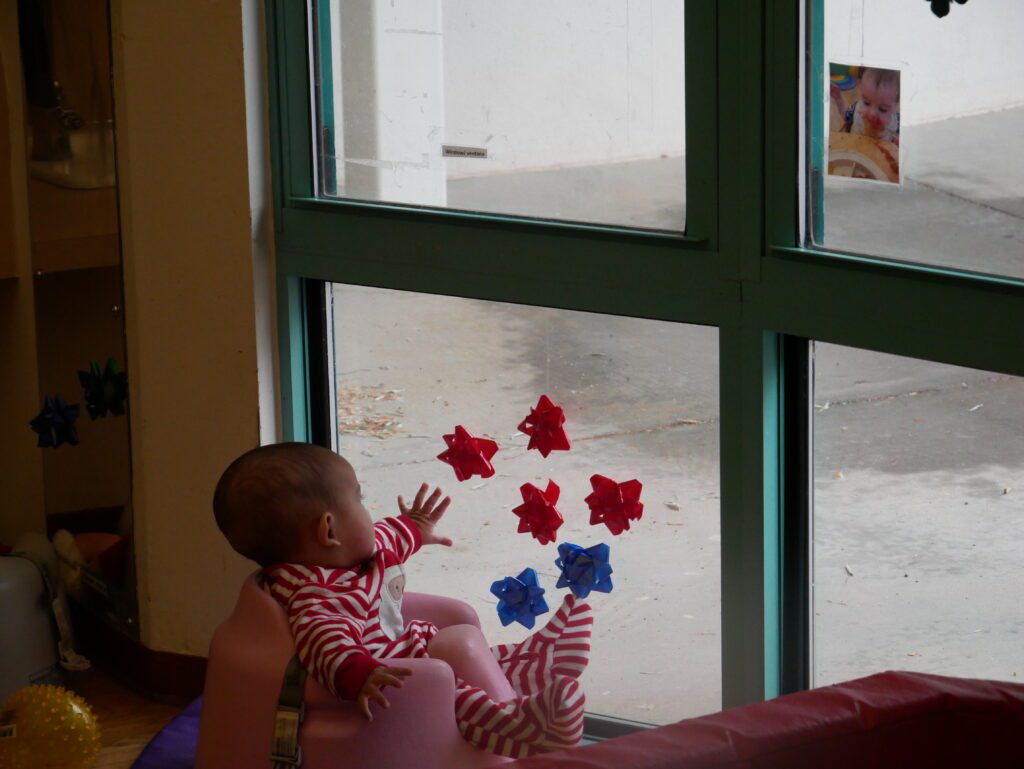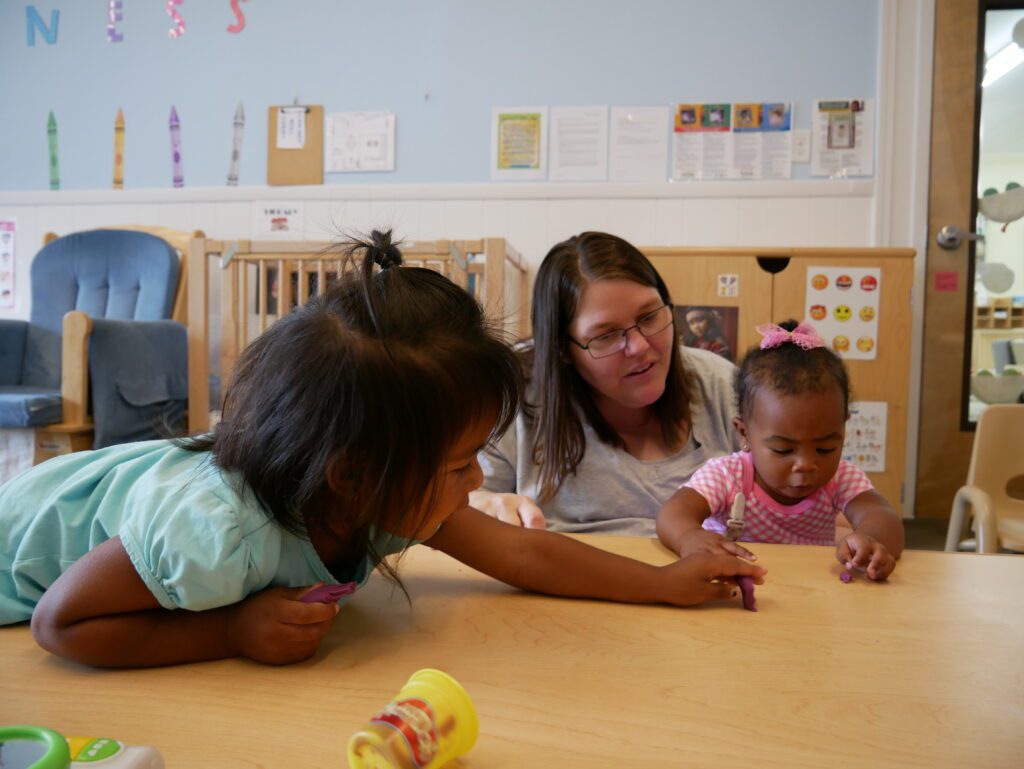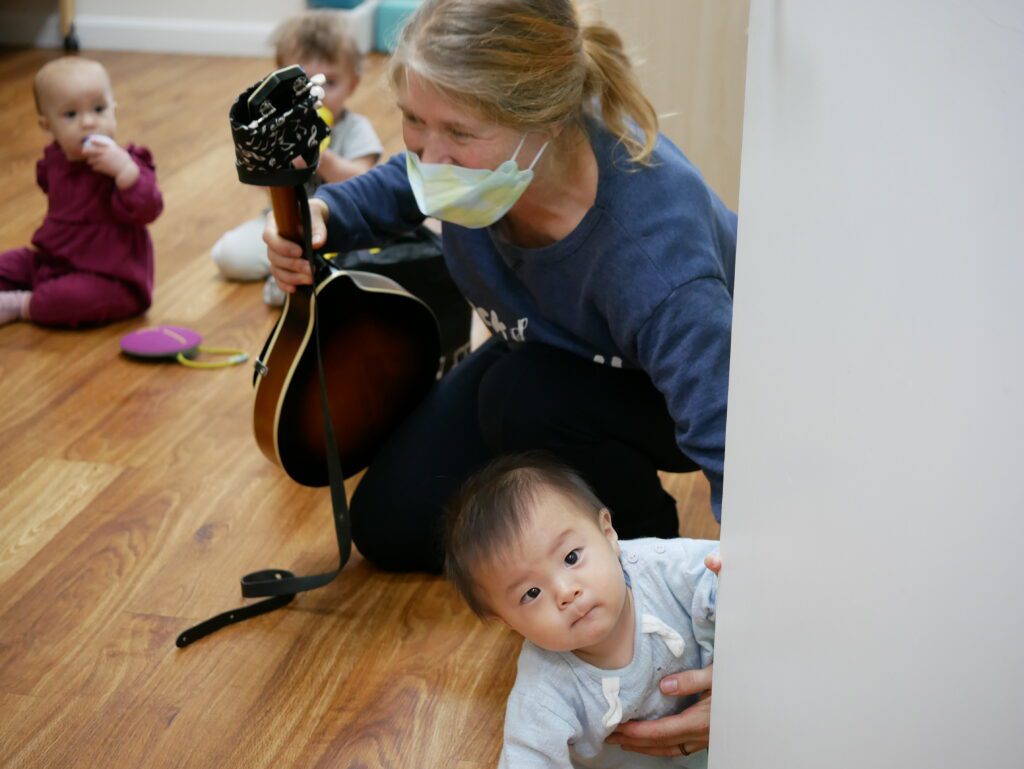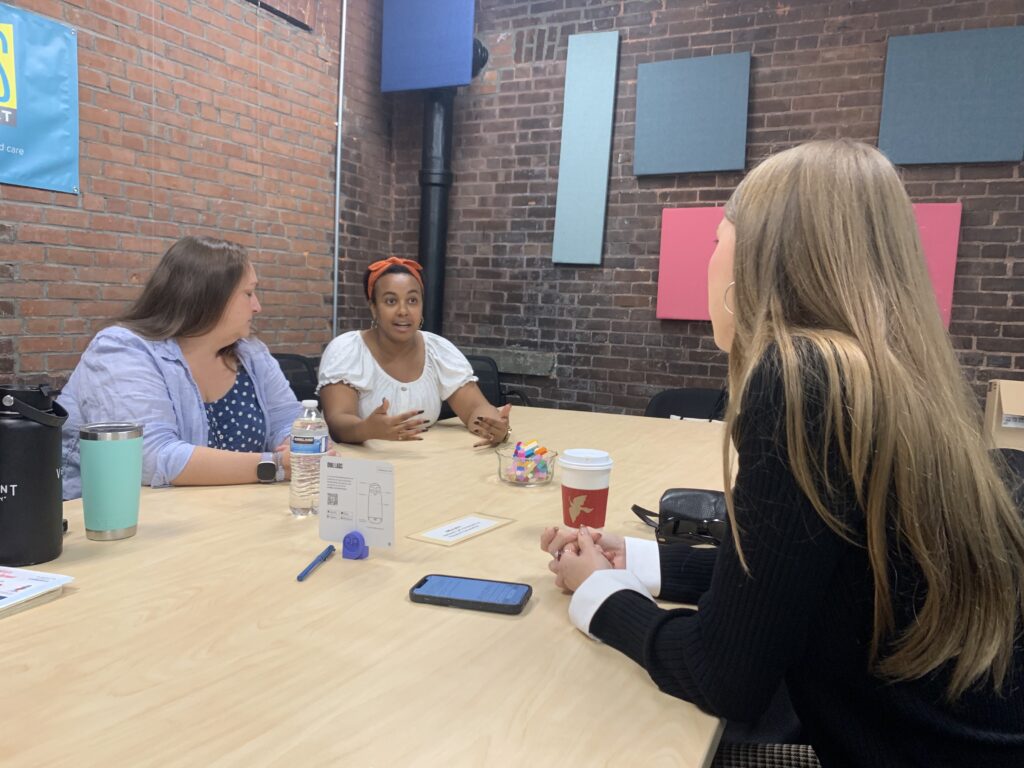Happy New Year!
Early Bird readers, hello again. Newcomers, welcome! If you were forwarded this email, you can sign up here to receive it every two weeks, and join our conversation on issues facing North Carolina’s young children and those who support them. If you’re already a subscriber, please help us reach more people by sharing this with your friends and co-workers interested in early childhood education.


Katie and I wrapped up 2023 in New Mexico on our final of five Learning Adventures, trips to other states leading the way in early childhood policy and investment.
Watch out this week for a story on how New Mexico has established permanent public funding streams for early care and education, and what challenges the state’s leaders are still grappling with.


Later this month, we’re bringing you overarching lessons for North Carolina from all five states. Go here for stories from Michigan, Vermont, Massachusetts, and Oregon. And join our Facebook group and follow Katie’s Instagram to keep up with our work and travel throughout the year.
In the meantime, we’re looking at the upcoming year and what we’re expecting in news and policy impacting early care and education.
The biggest date on our calendars is June 30. That’s when federal funding that is propping up North Carolina’s child care programs will expire.


In the absence of state or federal intervention, experts predict higher parent fees, staffing challenges, and site closures. We’ll be tracking closures by county with data from the NC Child Care Resource and Referral Council and the Division of Child Development and Early Education (DCDEE).
The NC Child Care Commission is redesigning the way the state measures and rates the quality of licensed child care. The group will send recommendations on changes to the Quality Rating and Improvement System (QRIS) during the short legislative session, which will start April 24.


That short session will be another opportunity for early childhood advocates to push for funding and policies to support early learning. The bipartisan co-chairs of the early childhood caucus said in November that funding to extend compensation grants will be their top priority.
“If we don’t deal with the pay issue of child care workers, we can’t do anything else,” said Sen. Jim Burgin, R-Harnett, during a panel at the NC Early Education Coalition’s annual convening.
This is an election year for state, presidential, and congressional offices. We will be asking candidates and current lawmakers where they stand on issues related to early childhood policy.


DCDEE is set to release a report this month on potential changes to the state’s child care subsidy system. The division contracted with the American Institute of Research to explore alternate ways to calculate how much child care programs should receive to serve children through subsidy assistance. Studies like these have been many states’ first step in paying programs closer to the true cost of care rather than the rate parents can afford.
DCDEE and the North Carolina Partnership for Children will also soon release the three counties they chose to participate in a two-year pilot modeled on Michigan’s Tri-Share program, which splits the cost of child care among participating employers, eligible employees, and state government. The state budget says the funding for this program ($900,000 each year) must be distributed to the local Smart Start partnerships facilitating the program evenly between this fiscal year and the next.


We also are following advocacy and philanthropic efforts across the state — Dogwood Health Trust’s early childhood workforce efforts in the West, the Ready for School, Ready for Life initiative in Guilford County, universal pre-K efforts in several counties, the EarlyEd FlexPlex model in Yadkin County, East Coast Migrant Head Start sites supporting agricultural workers and their families, and five promising models aimed at reducing early childhood suspensions and expulsions.
We can’t wait for another year lifting up your stories, finding solutions, and pushing conversations forward. Thank you for all you do.
More from EdNC on early childhood
Oregon's regional 'Primeros Pasos' brings together sectors to build child care for Latino communities
In 2021, Mike McNally found himself on an unexpected mission. As owner of Fairsing Vineyard & Winery an hour outside...As sites close in North Carolina, ‘a new era of child care’ begins in Vermont
On a recent Wednesday in Burlington, Vermont, a teacher blew bubbles over two infants lying side by side, of the...Exploring the nexus of religious and public schools
Last week in Boston, in the garden of a Catholic church that is 152 years old and a school that...Advice from Michigan to North Carolina on how to split child care cost between government, business, and parents
Editor’s Note: Katie Dukes contributed reporting. North Carolina soon will launch a pilot at three local Smart Start partnerships based...The big picture for little kids
News & Research
-
Our reporters look into their health policy crystal balls for 2024 - From NC Health News
-
Utah Bills Itself as “Family-Friendly” Even as Lawmakers Have Long Neglected Child Care - From ProPublica
-
Connecticut Launches Innovative Child Care Model to Address Shortages and Empower Entrepreneurs - From CT News Junkie
-
Our 10 Most Popular Early Childhood Education Stories of 2023 - From EdSurge
-
Using Early Childhood Data and Measurement to Leverage Change: Are We Making Progress? - From Journal of Research in Childhood Education
-
Research finds infants and toddlers can engage in imaginary play - From Medical Xpress
Taking flight! Opportunities to spread your wings
-
A webinar on maternity care deserts - From USC Annenberg Center for Health Journalism
Jan. 31, 2 pm ET
‘Dangerous Deliveries’: The Spread of America’s Maternity Care Deserts
From the organizer: “In this webinar, we’ll hear from two reporters who have extensively reported on America’s maternity care crisis and the unequal harms suffered by pregnant women of color and their children.”
-
An MLK celebration of books - From Book Harvest
January 15, 1-4 pm in Durham
Dream Big 2024: Book Harvest’s MLK Day Book Drive & Community Celebration
From the organizer: “Every year on MLK Day, we celebrate the power of community and our big dream of books and literacy for all kids with our biggest event of the year: Dream Big! The celebration is part book drive, part volunteer event, part community partner fair, part festival, and all party and fun!”
-
A moment for dad leadership - From National Center for Family and Parent Leadership
Jan. 18, noon ET
Recruiting & Engaging Fathers as Parent Leaders
From the organizer: “Dads matter! Their involvement in the lives of their children, as well as advocating for children and involvement in decision-making for services for children is critical, valuable, and much needed. Too often, early childhood programs and systems leave dads out, excluding them either by overlooking them or undervaluing their abilities, contributions, and interest. Join this webinar to learn about effective ways to recruit and engage fathers as you work to embed family and parent leadership.” -
A job opportunity as a 'child care business liaison' - From NC Department of Commerce
From the job description: “The Childcare Business Liaison is responsible for:
a) identifying meaningful ways in which employers can help build the infrastructure of quality early childhood education, including resources for businesses, policy opportunities or other strategies to encourage/incentivize employer engagement.
b) bringing the data and expertise from DHHS and Commerce together to develop and implement solutions.
c) serving as a liaison between the state agencies, employers and philanthropy; and
d) researching successful efforts elsewhere (e.g. Michigan Tri-Share) and helping to discern feasibility of such programs for North Carolina.”
-
Grants for Western NC child care - From Dogwood Health Trust
From Dogwood: “The majority of our grant investments will be made through our Strategic Priority Grant Opportunity in the first half of the year.” Applications are now open.
Included in the organization’s 2024’s priorities are:
- “Continue to support two ECE Workforce cohorts.
- Make exploratory/learning investments into family-centered early childhood education in homes and community spaces.”



